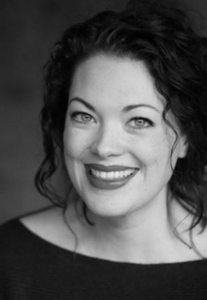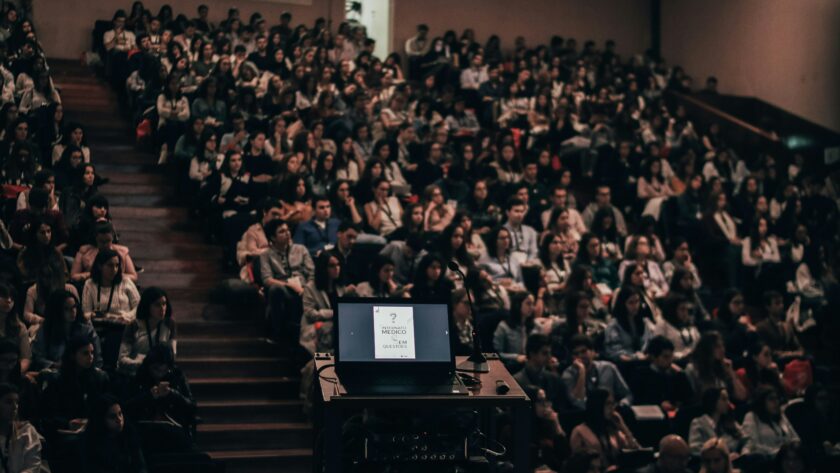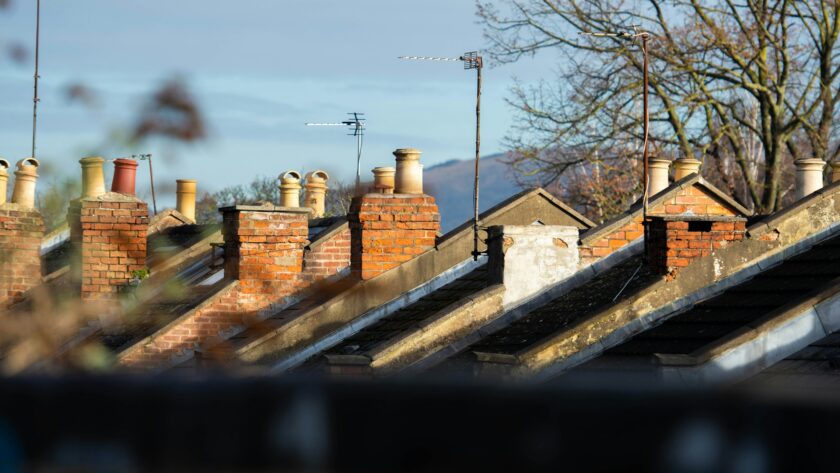Katherine Press – Hi Jessica, thanks so much for taking the time to talk to me! Could you start by telling us a little about how you got into script development?
Jessica Jones – When I first became involved in script development I was working as an assistant for a production company. At that point I’d not heard of development, but I was increasingly involved with conversations at the company about scripts, and I gradually came to realise that this was a job, and one which I very much liked the sound of! I was really excited about script and became a huge geek in terms of reading all the books about story and structure.
I moved to Channel 4 to work in script development there, then BBC Drama, where I worked as development coordinator, and finally to the BFI, initially on their trainee script editor scheme and then as an in-house script editor. Whilst there I worked on features both in production and in development, and I was closely involved with BFI NETWORK, working on their Picks slate of short films for a time too.
I went freelance at the beginning of 2019, which had been my goal for a while. I relish the opportunity to work across film and television – I do some development for a company called Bonafide, working on their television slate mostly, which I fit around my film development work. I currently have a few features that are in development, including at the BFI and Film Cymru, and loads of short films. I still work a lot for BFI NETWORK, which I love.
KP – So you enjoy the variety?
JJ – Yes. If anyone asks if I have a particular area I’m drawn to, I don’t have a genre as such, but I do love working with new talent. I suppose it can be a little bit more hands-on in that context. Often a new writer won’t have worked with a script editor before. They’ll be passionate about a story they want to tell, and it’s a real privilege to help them dig into what they really want to say and find the most impactful way of saying it.
KP – Are there any differences in working in film compared to television?
JJ – I’ve been really lucky to work across both. There’s so much fantastic work being made for television right now, but what excites me about film is the contained purity of vision that comes straight from the filmmaker – which I love being able to tap into and facilitate. The priority in terms of structure is slightly different in film – I suppose it’s more streamlined because it’s less episodic.
And short film, far from being the lesser relation of feature film, is an artform unto itself. It has its own challenges and limitations. Just like in a short story, you dip into a slice of life in a really condensed, interesting way.
A key part of the job is being able to listen and tune in to an individual writer. When I first meet someone I’ll spend a considerable amount of time up front establishing what it is they’re trying to say, and really excavating what is meaningful to them.
– Jessica Jones
KP – What do you think makes a great script editor?
JJ – As humans I think we all understand storytelling – it’s such an intrinsic part of who we are and how we communicate. But for a script editor, I think you need a passion for it that goes beyond the norm. You have to be obsessed with screenplays, specifically writing for the medium of screen. It helps if you enjoy understanding structure, and ideally you’ll have an intuitive feel for it.
And then, for me, a key part of the job is being able to listen and tune in to an individual writer. When I first meet someone I’ll spend a considerable amount of time up front establishing what it is they’re trying to say, and really excavating what is meaningful to them – what’s the highest priority in terms of what they’re trying to communicate, what matters most – and then looking at whether that’s on the page.
It’s an interesting detective exercise trying to uncover all these things, but I think it’s crucial to understand that your role is as a facilitator and that it’s their vision, not yours – you should never be imposing your vision onto the writer or their script. Finally, you’ve got to be able to take that intuitive listening and convert it into something practical that will help them get their vision onto the page.
KP – And how do you go about doing that?
JJ – For me, script editing is about asking the right questions. Sometimes what the writer wants to communicate isn’t quite matching up with what’s on the page. That can be for all sorts of reasons. As a writer you know the story really intimately and so you don’t necessarily have a bird’s eye view of it. But sometimes there’s a really interesting phenomenon where what they set up in the script demands it goes in a particular direction or has a particular ending, but they’ve shied away from that – in those cases it’s about looking at why that is.
So often it’s because the writer is afraid of taking it in that direction, perhaps because they’ve been given feedback that that’s a bad idea or they’re afraid of being judged, so there’s a real psychological component to that. When I read something that isn’t matching up, there are so many elements to why, and I think that such an exciting part of being a script editor is delving into that – whether it’s craft or psychology…
I’m actually currently training as a ‘transformational coach’, because I think the skillsets really cross over, whether it’s dealing with creative blocks or emotional blocks. It’s important to me to be able to take in a writer in a holistic way, to get under the skin of what’s going on for them. And things can get emotional sometimes, so I think it’s important to be sensitive to that.
KP – Do you have any advice for people wanting to get started in script development?
JJ – The obvious one is to get script reading jobs. Contact production companies or the BFI, BBC etc. to see if they’re taking on readers. Some of the schemes are really useful to read on – BBC Writers’ Room or 4Screenwriting. Generally, I’ve found that people are really willing to have coffees and offer advice – particularly if you write a really considered and targeted email to, for example, a head of development or to a development exec at a company whose work you really admire, and ask something particular.
Don’t be afraid of the theory. There are some really great theory books, like Into the Woods. Sometimes people can get hung up on ‘the rules’, but I think the key is to let them inform your understanding of story without being dogmatic about it.
– Jessica Jones
Beyond that, the tips I’d give are:
Know all the new talent. It’s a never-ending task, but hopefully an enjoyable one! I try to see as much as I possibly can at theatres which prioritise new writing, e.g. Soho Theatre, the Royal Court, the Bush; I also go to as many short film screenings as possible as that’s where a lot of the new filmmaking talent can be found.
Read as many scripts as you can. You can find lots online. The more you read, the more you’ll understand what works and what doesn’t.
Read scripts and then watch the film (or vice versa) so you can see how things translate from script to screen.
Don’t be afraid of the theory. There are some really great theory books, like Into the Woods. Sometimes people can get hung up on ‘the rules’, but I think the key is to let them inform your understanding of story without being dogmatic about it. They can be so helpful in giving you the language to be able to understand the development world.
I remember when I started out, I felt I had an instinct for when things were working, but I didn’t know how to articulate that or how to pinpoint why something was or wasn’t working. So, books or courses or workshops can be a really valuable entry point.
KP – How does that learning feed into your work with the writers?
JJ – Someone said to me recently that ‘the rules are tools’ and as such they’re useful for fixing things, rather than necessarily being a starting point for a story. So, having those tools at your fingers as a script editor can be a really helpful way to troubleshoot an issue.
However, when you’re speaking to writers the key is asking the questions, so that’s always what I’ve got in mind – I’ve identified the problem, so now how can I get them to that place? What are the questions that will unlock this for them, and what will serve the story best?
KP – And presumably the interpersonal aspect is critical there?
JJ – It’s so relationship based. Ideally the chemistry is right and you’re a good fit in terms of what they need – some writers respond to tough love, others prefer hand-holding. That depends both on who you are as a script editor and who they are as a writer.
KP – What about when there are multiple voices in the mix – producers, execs – how does that alter things?
JJ – That can happen, and as the script editor you want to try to hold all of those things in your awareness. In the notes process, there are bound to be differing notes, because of course some of this is subjective – and you have to know this about yourself too, because you’re not necessarily right. We all see things differently, so neither your notes nor your solutions are the ultimate answer that the writer should obey.
You have to take in notes from everywhere else, but you’ve got to keep checking in with the writer – has a note completely strayed away from what they’re trying to say, in which case perhaps that note doesn’t belong in the mix? Or has this producer noticed something that’s really important that neither you nor the writer had identified? Sometimes as an editor – just like a writer – you can get too close to a project and lose that bird’s-eye perspective, so other voices are helpful and healthy.
It’s a holistic process – finding the core, establishing and grounding that. I find that’s the strongest, most effective place to work from.
– Jessica Jones
As an editor you’re better able to stay detached. The writer can end up feeling quite vulnerable during this process, but you’re once removed, so it’s your responsibility to help the writer navigate through it. What feels right? What feels like a helpful note? Because often you simply can’t fix all the notes. Often there are big notes which, if fixed, will have the effect of resolving lots of smaller notes in an umbrella fashion.
With short films in particular, once you’ve established what the film is about, and you’ve ensured every scene lines up and is telling that story, a lot of the smaller issues will fix themselves. It’s a case of: do we need to go into the nitty gritty of each of these notes, or if I fix this bigger thing, will other things fall into place? Pick your battles. Again, it’s a holistic process – finding the core, establishing and grounding that. I find that’s the strongest, most effective place to work from.
KP – What are those key questions you often find yourself asking?
JJ – What is it about? What’s your protagonist’s journey? Do you have enough subtext? Is your dialogue functioning as it should be? Particularly with new talent I find it often comes back to dialogue and subtext – it’s so critical in screenwriting.
KP – Thank you Jessica. I’m sure our students will find this fascinating. Any final thoughts?
JJ – I love script editing! I love reading scripts and I’m always excited when a new one comes in. It’s the best job in the world to sit in a room and talk about script all day.
Jessica Jones is a freelance Script Editor & Development Consultant, working across feature films, shorts, and TV. She is script editing on several features in development with, among others, the BFI, Film Cymru, and Radiotelevisione Svizzera, as well as regularly consulting on projects for BFI NETWORK. Previously she has worked as an in-house Script Editor for the BFI Film Fund, and in development teams for BBC Drama Commissioning, Channel4 Drama, and Colin Firth’s Raindog Films.




